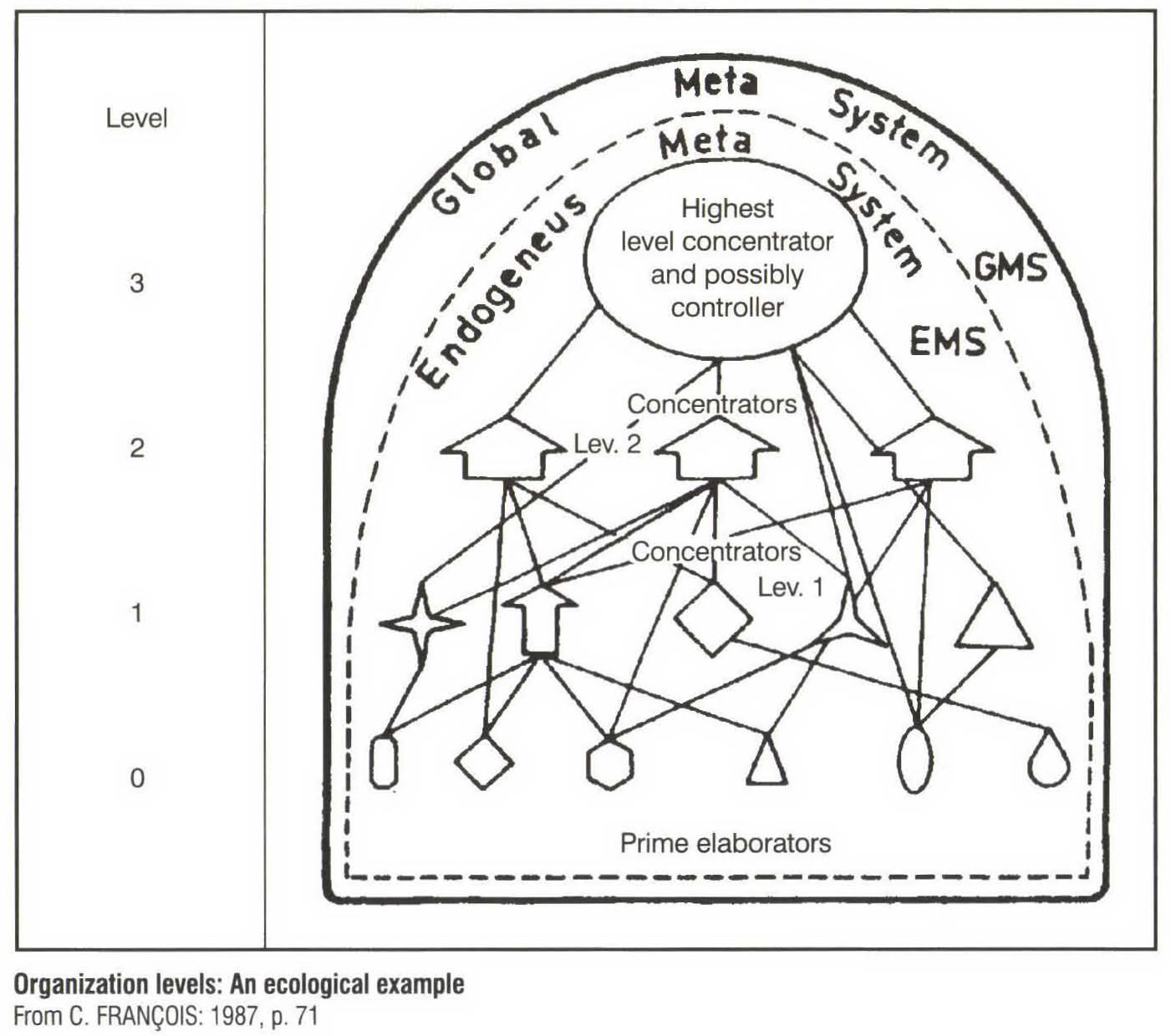ORGANIZATION (levels of) 2)4)
← Back
According to R. ROSEN, a system is "… hierarchically organized if it satisfies the following two conditions: a) the system is engaged simultaneously in a variety of separate distinguishable activities, and b) different systems descriptions are necessary to describe these several activities. It is this second condition which characterizes biological systems, with their stratification into many levels of organization" (1972, p.59).
A good example of organization through levels is given by J.P. CHANGEUX, describing the successive levels of neural organization in the brain:
- individual connections between neurons
- elemental circuits of a reduced number of neurons in charge of specific reflexes functions (walking, swimming, bicycling, etc.)
- more complex clusters of associated neurons able to codify more abstract representations
- clusters of clusters, corresponding in the human brain to the highest mental abilities: reasoning, planning, etc. (1992, p.706).
There appears to be a progressive algorithmization process at different levels.
One may wonder if the same type of processes is not a general feature of emergent social organization. It seems to characteristize the present process of globalization of human social systems.

Categories
- 1) General information
- 2) Methodology or model
- 3) Epistemology, ontology and semantics
- 4) Human sciences
- 5) Discipline oriented
Publisher
Bertalanffy Center for the Study of Systems Science(2020).
To cite this page, please use the following information:
Bertalanffy Center for the Study of Systems Science (2020). Title of the entry. In Charles François (Ed.), International Encyclopedia of Systems and Cybernetics (2). Retrieved from www.systemspedia.org/[full/url]
We thank the following partners for making the open access of this volume possible:

